The State of Israel was not founded on the Holocaust
The seminar dedicated to the memory of the Holocaust, which was organised by schools in Busto Arsizio and Valle Olona, has come to an end at the MAGA. The historian Georges Bensoussan, the director of the Memorial Museum, in Paris, spoke about the relationship between the birth of the State of Israel and the extermination of the Jews in Europe.
The international seminar dedicated to the memory of the Holocaust, which was organised by schools in Busto Arsizio and Valle Olona, has come to an end at the MAGA Museum in Gallarate. The historian Georges Bensoussan, the editor of the Memorial Museum, in Paris, spoke about the relationship between the birth of the State of Israel and the extermination of the Jews in Europe.
In Bensoussan’s opinion, a sense of guilt has nothing to do with the foundation of the State of Israel. “From the moral point of view,” Bensoussan explained, “the Zionists feel a sense of defeat, because, in 1939, no fewer than 17 million Jews were living outside Israel, 11 million in Europe, 4 million in the USA, and the rest in Muslim countries. Well, there are many texts written by Zionists of the day, who clearly felt that the relationship that the Jews had with Europe, would end in a blood bath.”
Before the Second World War, one out of five Jews lived in Poland. The Jewish presence in the Old Continent was so important that it represented for Zionism a genuine reserve of people, but after the extermination at the hands of the Nazis, Ben Gurion (who was born in Poland, ed.), the father of the emerging State, feared that the UN would not legitimise the demand for recognition, as there was no one else that could move to Israel. “Recognition came in 1948,” the historian said, “but we must remember that, already in 1922, that is, twenty years before Treblinka, the United Nations had recognised that community. Furthermore, the Jews from Yemen and North Africa had arrived well before the Holocaust, and, in 1939, there were 200,000 people already living in Tel Aviv.”
Hebrew never died out, but after the Diaspora, it was no longer the native tongue. And yet, it would become that language of the emerging State. “It was a living language, a living people, who had existed before the extermination,” Bensoussan pointed out.
The welcome that the land of the fathers gave to the survivors of the Holocaust, primarily the young and very young, was lukewarm. It was what had already happened in other countries. Nobody wanted to listen to those stories of horror and death; before resolving mental problems, the State had to solve the practical. “The Jews living in Israel, already felt guilty,” Bensoussan explained, “because the years from 1943 to 1945, in Palestine, had been of peace, happiness and serenity, which was the exact opposite for their European brothers who were dying in Treblinka and in the other extermination camps. And so, this feeling of guilt turned into aggression.”
The survivors, who were ashamed, did not feel like heroes, but the lucky ones. The generations got older, and the people who were once young and had arrived in Israel to start anew, without a family and without a past, which had been cancelled by the gas chambers and crematoria, began to speak. “In order not to be understood by their children, the fathers spoke Yiddish, and to indicate Europe, they said “over there”, the terrible place,” said Bensoussan.
In 1953, Yad Vashem, Israel’s official memorial to the victims of the Holocaust, was created, and in 1961, there was the trial of Eichmann, the Nazi leader who had been one of those most responsible for the Jewish extermination. The Nuremburg trial was broadcast live, by radio, throughout the country; the daily horrors committed had never been told by anybody, and thus became the incentive for people’s memories to emerge.
Today The memory of the extermination is increasingly felt, and, in the last 20 years, more than 300,000 Israeli students have visited Auschwitz, and Holocaust and Heroism Remembrance Day (Yom ha-shoah) the whole country comes to a halt.
“There is an excess of remembering, which is dangerous, because not all enemies are Nazis,” the French historian concluded. “And, every day, when the Israelis wake with their obsession about Iran, they forget that the roots of their State are in Zionism, which is like the Risorgimento for Italy.”
TAG ARTICOLO
La community di VareseNews
Loro ne fanno già parte
Ultimi commenti
GrandeFratello su Vandalizzato il belvedere di San Fermo che i residenti stavano ripristinando
lenny54 su Dal 1° agosto scatta l'aumento sul servizio Malpensa Express da Milano all'aeroporto
Roberto Ganna su Elsa Fornero a Varese: “Abbiamo tolto futuro ai giovani. Ora dobbiamo restituirglielo”
Baffetta su Elsa Fornero a Varese: “Abbiamo tolto futuro ai giovani. Ora dobbiamo restituirglielo”
Fabrizio Tamborini su Elsa Fornero a Varese: “Abbiamo tolto futuro ai giovani. Ora dobbiamo restituirglielo”
Alessandro Zanzi su Elsa Fornero a Varese: “Abbiamo tolto futuro ai giovani. Ora dobbiamo restituirglielo”





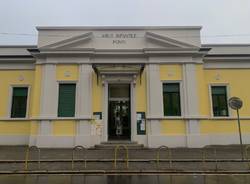


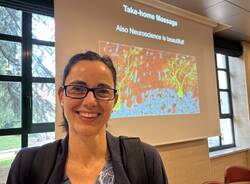
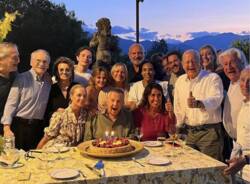

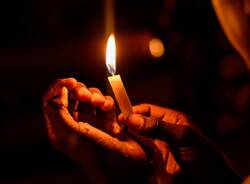

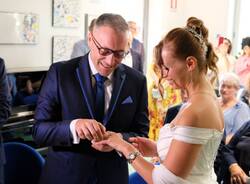


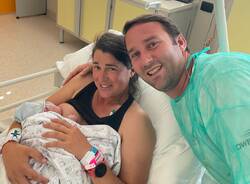

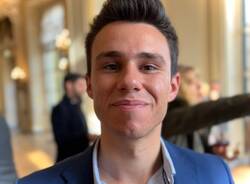

Accedi o registrati per commentare questo articolo.
L'email è richiesta ma non verrà mostrata ai visitatori. Il contenuto di questo commento esprime il pensiero dell'autore e non rappresenta la linea editoriale di VareseNews.it, che rimane autonoma e indipendente. I messaggi inclusi nei commenti non sono testi giornalistici, ma post inviati dai singoli lettori che possono essere automaticamente pubblicati senza filtro preventivo. I commenti che includano uno o più link a siti esterni verranno rimossi in automatico dal sistema.